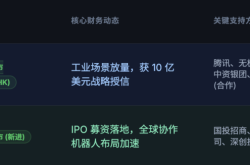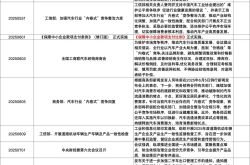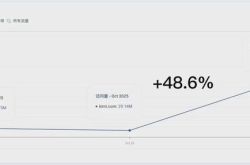Zhang Yiming becomes China's richest man with a fortune of 350 billion yuan
![]() 10/30 2024
10/30 2024
![]() 518
518

On October 29, Hurun Research Institute released the Hurun China Rich List 2024. Among them, ByteDance founder Zhang Yiming surpassed Nongfu Spring founder Zhong Shanshan as China's first self-made billionaire born in the 1980s, with his wealth increasing by 105 billion yuan (from last year) to a total of 350 billion yuan.
China's richest man changes hands
According to Hurun Research Institute, a total of 1,094 entrepreneurs with personal wealth exceeding 5 billion yuan were listed this year, with an average age of 61, two years older than last year. Compared to last year, the wealth of 331 entrepreneurs increased, while the wealth of 964 entrepreneurs remained unchanged or decreased, and 201 entrepreneurs dropped off the list.
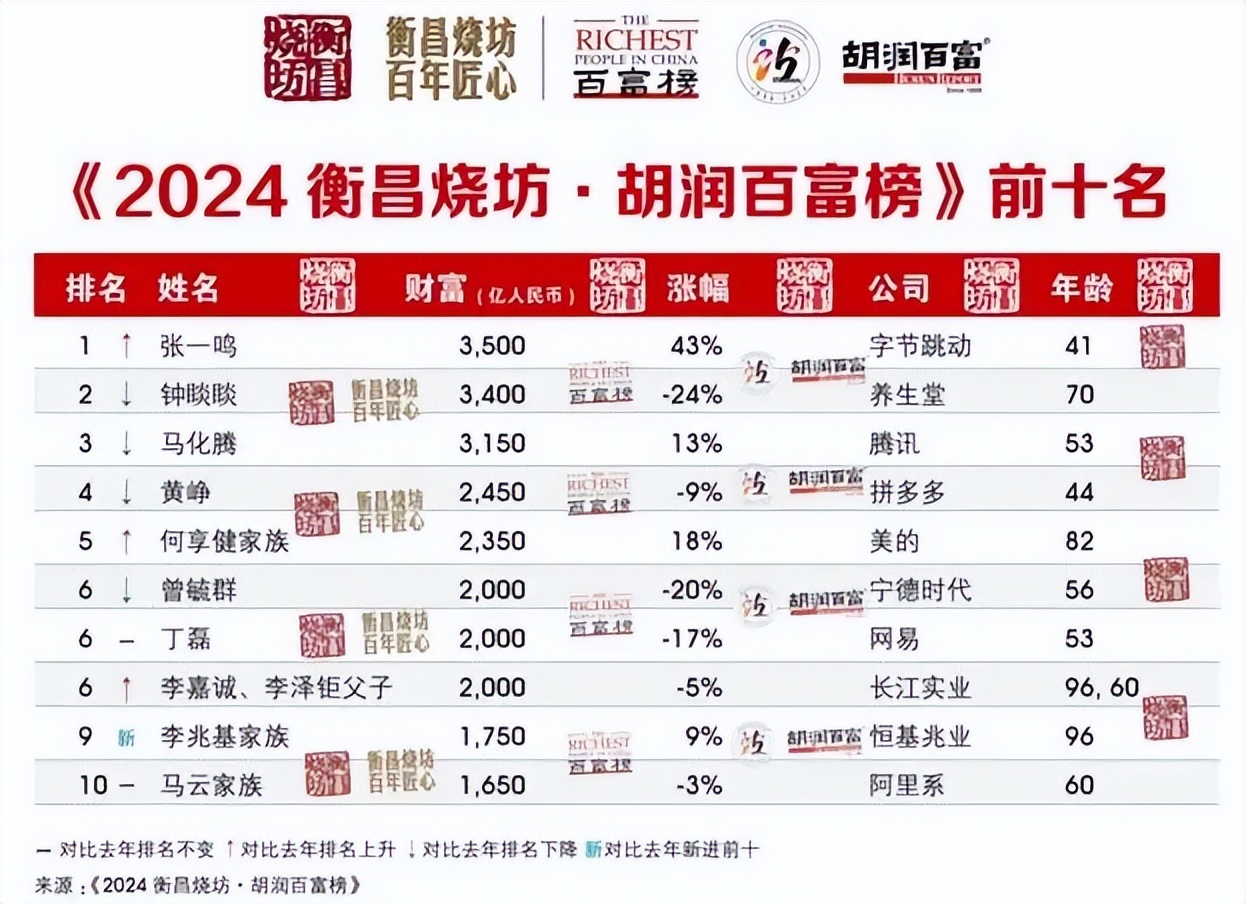
In terms of wealth ranking (TOP 5), Zhang Yiming's total wealth increased by 105 billion yuan from last year, while Zhong Shanshan's decreased by 110 billion yuan, Ma Huateng's increased by 35 billion yuan, Huang Zheng's decreased by 25 billion yuan, and the wealth of the He Xiangjian family increased by 35 billion yuan.
In terms of net wealth growth (TOP 3), Zhang Yiming topped the list with a gain of 105 billion yuan, followed by Zhao Changpeng (90 billion yuan) and Lei Jun (36 billion yuan).
ByteDance's global revenue growth fuels Zhang Yiming's wealth surge
ByteDance's global revenue increased significantly last year, reaching 850 billion yuan, up 30% year-on-year. TikTok alone generated $110 billion in revenue in the US. The success of short video products can be attributed to the global rollout of high-quality mobile networks and widespread smartphone adoption, which made fragmented viewing possible worldwide, eliminating hardware barriers. Additionally, the evolution of recommendation algorithms has enabled ByteDance to accurately analyze user preferences, predict viewing tendencies, and deliver tailored content, fostering a strong bond between users and the platform, ultimately contributing to Zhang Yiming's ascent to China's richest man.
Entrepreneurial failures are a rite of passage for industry leaders
Zhang Yiming was born in Longyan, Fujian Province, in 1983, earning him the title of one of the "Three Outstanding Figures of Longyan" alongside Xueqiu founder Fang Sanwen and Meituan founder Wang Xing.
In 2005, freshly graduated from Nankai University's software engineering program, Zhang joined a startup aiming to develop a collaborative office system for enterprises. However, due to its futuristic vision and the lack of a domestic market, the project ultimately failed.
In 2006, Zhang joined Koolearn as its first engineer after regaining his composure. However, due to the company's unclear development direction and management chaos, he resigned in 2008 to join Microsoft to further hone his technical skills.

Also in 2008, Wang Xing, freshly departed from Renren, approached Zhang. After some persuasion, Wang convinced Zhang to join his team as a technical partner, overseeing the search modules for Hainei and Fanfou. Unfortunately, despite Fanfou's swift rise to popularity, it was marred by mismanagement of sensitive information in 2009, allowing Weibo to seize market opportunities and straining Zhang's relationship with Wang Xing.
Following this setback, Zhang partnered with Koolearn investor Wang Qiong to establish 99fang, which eventually became China's top mobile real estate app in 2011. This success not only showcased the potential of information-based apps but also revealed the vast untapped potential of mobile internet users to Zhang.
Zhang's vision proved prescient as China's mobile phone market surpassed the PC market for the first time in 2011, becoming the primary internet access device.
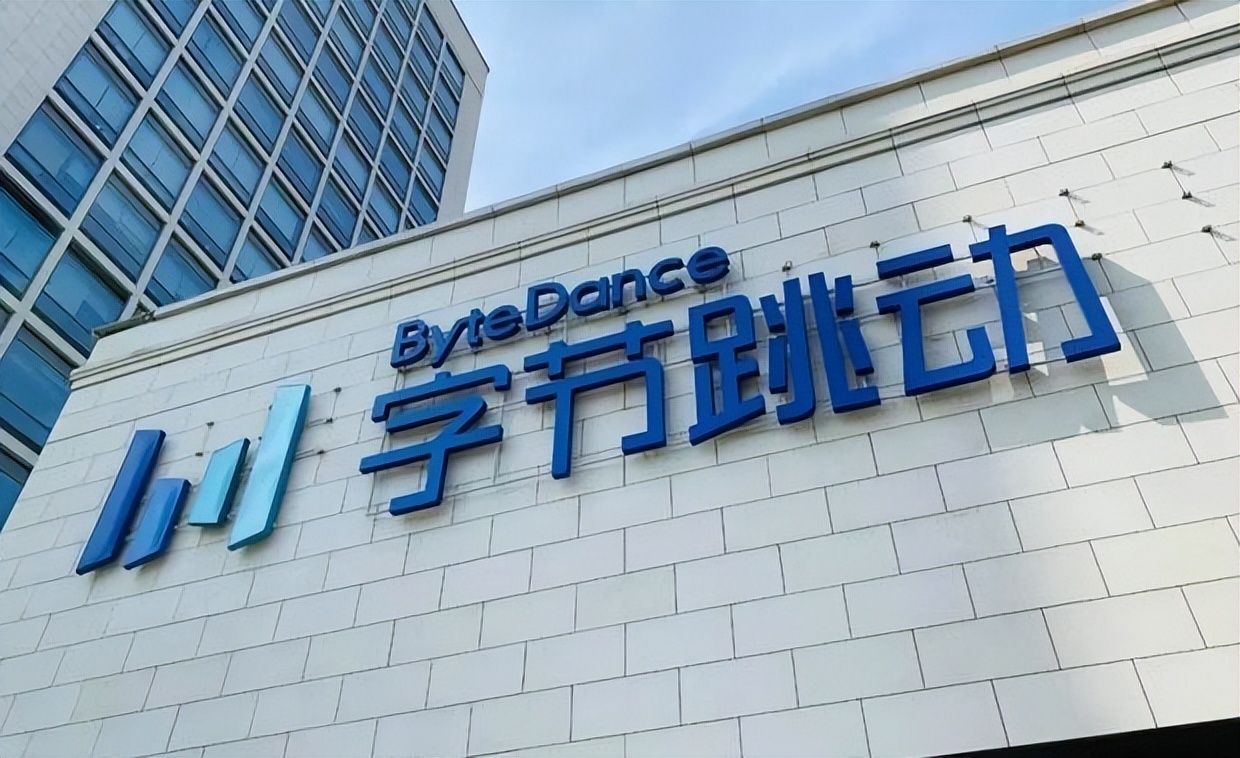
Capitalizing on this shift, Zhang founded ByteDance in 2012, drawing on his past experiences in information gathering and distribution. He employed a "general-to-specific" strategy, launching multiple apps to accumulate users across various sectors. ByteDance then leveraged personalized recommendation algorithms to tailor content to individual users, popularizing the slogan, "What you care about is headlines." This approach culminated in the development of Douyin (TikTok's Chinese counterpart), which capitalized on users' fragmented time and ushered in the era of short videos in China.
Monetizing ByteDance's user base and traffic
With a solid user base, traffic, and content creators, Zhang faced the challenge of monetizing ByteDance's assets.
His initial strategy focused on B2B revenue streams, leveraging ByteDance's hundreds of millions of users to attract advertisers. This influx of businesses generated revenue from sources such as splash screen ads, sponsored content, and influencer partnerships.
C2C monetization potential was also substantial, prompting ByteDance to enter the e-commerce space with significant investments in live streaming, gaming, and other interactive features. Unlike traditional e-commerce, where customers actively search for products, ByteDance's algorithm-driven approach personalizes product recommendations, creating demand where none existed before.
ByteDance's foray into local services
According to Douyin's 2023 Annual Data Report, the platform covered over 370 cities and experienced a 256% increase in total transaction value. Compared to last year, short video transactions grew by 83%, while live streaming transactions surged by 570%.
It is evident that Zhang Yiming aspires beyond being a mere "information distributor," as he encourages ByteDance products to integrate into daily life aspects like food, clothing, housing, and transportation. However, this strategy necessitates direct competition with established players like Meituan for the increasingly scarce user base in the internet ecosystem.
Predicting Zhang Yiming's next moves
Looking ahead, Zhang is likely to consolidate his existing user base in apps like Douyin, Toutiao, and TikTok while exploring new avenues for growth and revenue streams. By diversifying into various sectors and developing new business segments, ByteDance aims to create a seamless, interconnected ecosystem, unlocking new monetization opportunities.
Reference:
JMD News: Zhang Yiming, boss of Toutiao and Douyin, becomes China's richest man, surpassing Zhong Shanshan, while Lei Jun ranks among the top 20 with a fortune of 130 billion yuan
Retail Business & Finance: Zhang Yiming of Douyin: Building the ByteDance Empire with Algorithmic Insight
Finance: Wall Street Predicts Zhang Yiming Could Become China's First Billionaire, as ByteDance Returns to Core Business Amid Game Industry Pullback
National Business Daily: Douyin Life Services Releases 2023 Annual Data Report

